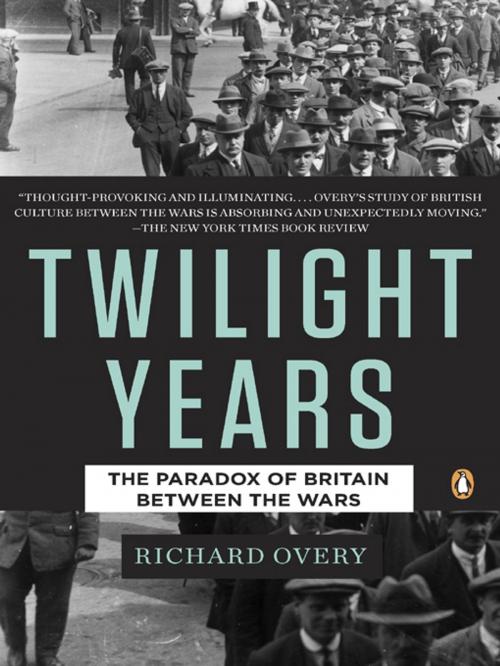The Twilight Years
The Paradox of Britain Between the Wars
Nonfiction, History, Military, World War I, Modern, 20th Century, British| Author: | Richard Overy | ISBN: | 9781101498347 |
| Publisher: | Penguin Publishing Group | Publication: | November 30, 2010 |
| Imprint: | Penguin Books | Language: | English |
| Author: | Richard Overy |
| ISBN: | 9781101498347 |
| Publisher: | Penguin Publishing Group |
| Publication: | November 30, 2010 |
| Imprint: | Penguin Books |
| Language: | English |
From a leading British historian, the story of how fear of war shaped modern England
By the end of World War I, Britain had become a laboratory for modernity. Intellectuals, politicians, scientists, and artists?among them Arnold Toynbee, Aldous Huxley, and H. G. Wells?sought a vision for a rapidly changing world. Coloring their innovative ideas and concepts, from eugenics to Freud?s unconscious, was a creeping fear that the West was staring down the end of civilization.
In their home country of Britain, many of these fears were unfounded. The country had not suffered from economic collapse, occupation, civil war, or any of the ideological conflicts of inter-war Europe. Nevertheless, the modern era?s promise of progress was overshadowed by a looming sense of decay and death that would deeply influence creative production and public argument between the wars.
In The Twilight Years, award-winning historian Richard Overy examines the paradox of this period and argues that the coming of World War II was almost welcomed by Britain?s leading thinkers, who saw it as an extraordinary test for the survival of civilization? and a way of resolving their contradictory fears and hopes about the future.
From a leading British historian, the story of how fear of war shaped modern England
By the end of World War I, Britain had become a laboratory for modernity. Intellectuals, politicians, scientists, and artists?among them Arnold Toynbee, Aldous Huxley, and H. G. Wells?sought a vision for a rapidly changing world. Coloring their innovative ideas and concepts, from eugenics to Freud?s unconscious, was a creeping fear that the West was staring down the end of civilization.
In their home country of Britain, many of these fears were unfounded. The country had not suffered from economic collapse, occupation, civil war, or any of the ideological conflicts of inter-war Europe. Nevertheless, the modern era?s promise of progress was overshadowed by a looming sense of decay and death that would deeply influence creative production and public argument between the wars.
In The Twilight Years, award-winning historian Richard Overy examines the paradox of this period and argues that the coming of World War II was almost welcomed by Britain?s leading thinkers, who saw it as an extraordinary test for the survival of civilization? and a way of resolving their contradictory fears and hopes about the future.















